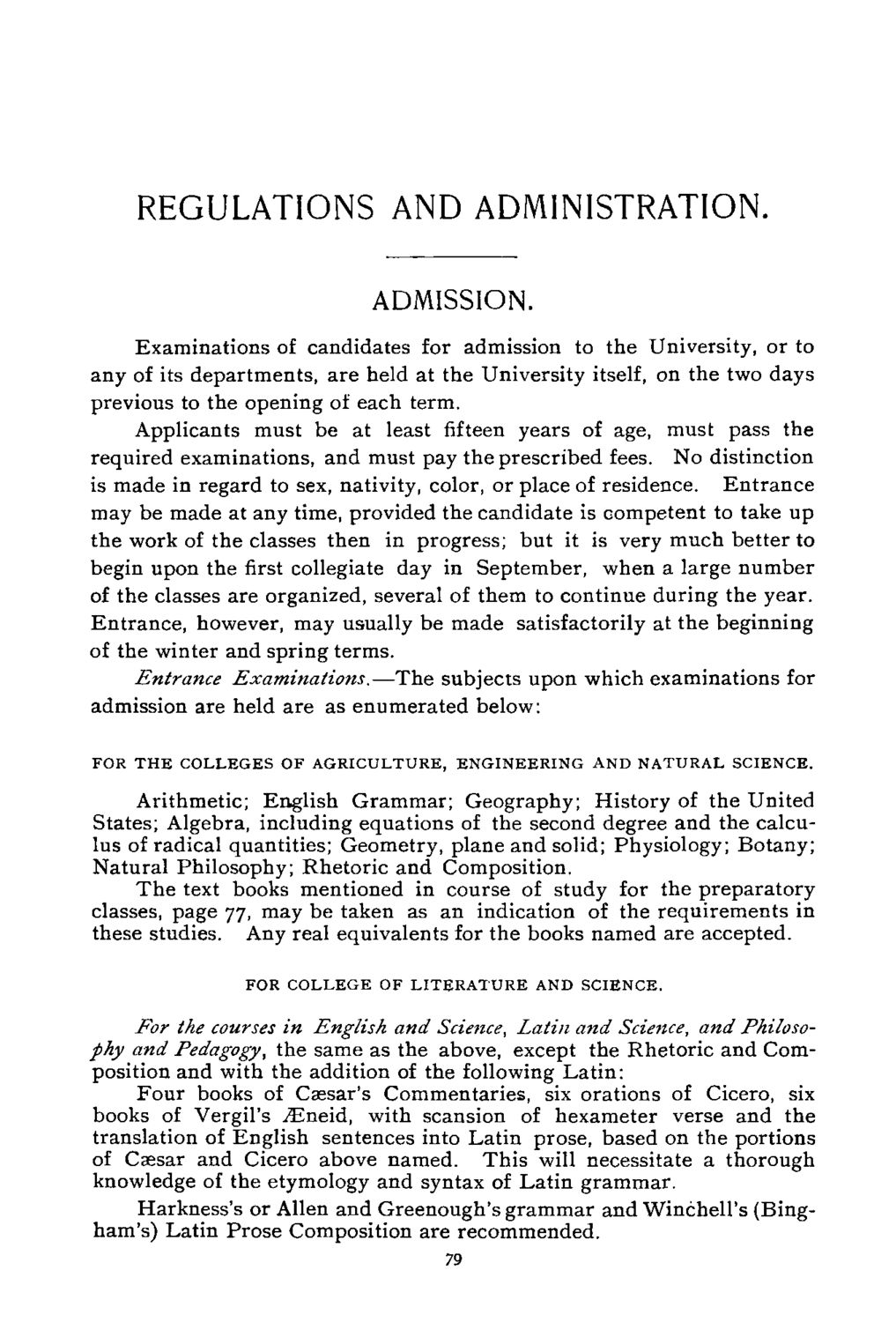| |
| |
Caption: Course Catalog - 1890-1891
This is a reduced-resolution page image for fast online browsing.

EXTRACTED TEXT FROM PAGE:
REGULATIONS AND ADMINISTRATION. ADMISSION. Examinations of candidates for admission to the University, or to any of its departments, are held at the University itself, on the two days previous to the opening of each term. Applicants must be at least fifteen years of age, must pass the required examinations, and must pay the prescribed fees. No distinction is made in regard to sex, nativity, color, or place of residence. Entrance may be made at any time, provided the candidate is competent to take up the work of the classes then in progress; but it is very much better to begin upon the first collegiate day in September, when a large number of the classes are organized, several of them to continue during the year. Entrance, however, may usually be made satisfactorily at the beginning of the winter and spring terms. Entrance Examinations.—The subjects upon which examinations for admission are held are as enumerated below: FOR THE COLLEGES OF AGRICULTURE, ENGINEERING AND NATURAL SCIENCE. Arithmetic; English Grammar; Geography; History of the United States; Algebra, including equations of the second degree and the calculus of radical quantities; Geometry, plane and solid; Physiology; Botany; Natural Philosophy; Rhetoric and Composition. The text books mentioned in course of study for the preparatory classes, page 77, may be taken as an indication of the requirements in these studies. Any real equivalents for the books named are accepted. FOR COLLEGE OF LITERATURE AND SCIENCE. For the courses in English and Science, Latin and Science, and Philoso- fhy and Pedagogy, the same as the above, except the Rhetoric and Composition and with the addition of the following Latin: Four books of Cassar's Commentaries, six orations of Cicero, six books of Vergil's .SJneid, with scansion of hexameter verse and the translation of English sentences into Latin prose, based on the portions of Caesar and Cicero above named. This will necessitate a thorough knowledge of the etymology and syntax of Latin grammar. Harkness's or Allen and Greenough's grammar and Winchell's (Bingham's) Latin Prose Composition are recommended.
| |